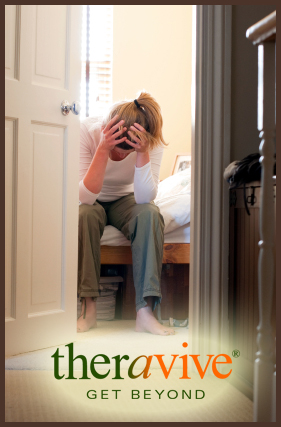 Alcohol and drug abuse and addiction can wreak havoc on a family. Every member of the family unit is affected. Al-Anon, a 12-step group for friends and family members of problem drinkers (or other addictions) refers to alcoholism as a family disease. The fact that Al-Anon exists is a testament to the reality that alcohol and drug addiction touch every member of the family.
Alcohol and drug abuse and addiction can wreak havoc on a family. Every member of the family unit is affected. Al-Anon, a 12-step group for friends and family members of problem drinkers (or other addictions) refers to alcoholism as a family disease. The fact that Al-Anon exists is a testament to the reality that alcohol and drug addiction touch every member of the family.
Three Critical Things to Remember
- You didn’t cause the problem – Often children and spouses/partners hear things that make them believe that if they will change, their loved one will stop drinking or using other drugs. Wives are told they nag too much; children are accused of being too messy or too loud. All of these are excuses for the person to drink or use other drugs. The reality is that people with addictions often lack coping skills. Many have anxiety or other underlying problems that make them more susceptible to stress. It is not your fault – changing your behavior will not solve this problem, though many times our behavior needs to change for other reasons.
- You can’t cure the problem – Since you aren’t the cause of the problem, you can’t cure it. The only person who can do that is the person who is addicted to or abusing alcohol or other drugs. No amount of pleading, coercion or bribery will work – this is something only the person with the addiction can do. Addiction is a complex problem that involved biological, psychological, social and other processes that need to be assessed and addressed for long-term recovery. Much like dieting or other health-related changes, it takes commitment and time to see results.
- You can’t control anyone but yourself – This is related to the first two points, but also different and very important to learn. Living in a home with an alcohol or other drug addict or abuser often feels chaotic and unpredictable. People who grow up in these families are affected in different ways, but a common theme found among adult children of alcoholics is that of control issues.
People who feel they have no control over their lives or environment often look for something they can control. The opposite problem can also occur – people feel helpless or powerless so they relinquish their control to others. Either extreme can have serious long-term consequences that impact work, relationships, health and mental health.
How to Help Yourself
Co-dependency – learn the red flags of co-dependency, and get help if you need it. Co-dependency is a term that has been used and abused over the years. It originated in the 80s when the Adult Children of Alcoholics movement began. Few who live in alcoholic families escape the clutches of codependency.
According to Wikipedia, codependency is “a psychological condition or a relationship in which a person is controlled or manipulated by another who is affected with a pathological condition (typically narcissism or drug addiction); and in broader terms, it refers to the dependence on the needs of, or control of, another. It also often involves placing a lower priority on one's own needs, while being excessively preoccupied with the needs of others.”
Boundaries – another common problem seen among people who grow up in families where someone has a an alcohol or other drug problem is putting others’ needs before your own. Kids who grow up with an alcoholic or drug addicted parent often have to take on responsibilities that the adults are neglecting. This can develop into an unhealthy pattern of putting other’s needs before our own, often resulting in unhealthy relationships.
Self care – put yourself first when possible. Get plenty of rest, exercise, good nutrition and play. Let others take care of themselves when/if they can. Train your children and family members to be independent and take care of their own needs rather than expecting you to do things for them that they can do for themselves (within reason and age-appropriate).
How to Help Your Loved One
It is not uncommon for loved ones of alcohol and other drug addicts to lie for, cover for and protect the person with an addiction. This is the worst thing you can do for them – and you. Don’t make excuses for their absences or inappropriate behavior.
Allow them to experience the full consequences of every choice they make. We often think going to jail or losing a job would be too devastating for them – it is not. It is only when they begin to accept responsibility for the pain, suffering and chaos of their behavior that they might realize how badly they need help. Unfortunately, in these cases, our efforts at helping usually end up hurting them more.
Go about your life and take care of yourself. If they ask for your help in getting sober, be supportive but clear – it is not something you can do for them.
_______________________________________________________________________________________________
"How Do You Know If You Are Affected by Someone's Drinking?" How Do You Know If You Are Affected by Someone's Drinking? N.p., n.d. Web. 23 Sept. 2013.
"New Patterns of Codependency." New Patterns of Codependency. Co-Dependents Anonymous World Fellowship, n.d. Web. 23 Sept. 2013.
"Codependency." Wikipedia. Wikimedia Foundation, 14 Sept. 2013. Web. 23 Sept. 2013
About the Author
 LuAnn Pierce, LCSW
LuAnn Pierce, LCSWI am a clinical social worker, therapist and writer. Currently, I offer online therapy and coaching services to people in Colorado and Wyoming. As a provider for the CO Department of Vocational Rehabilitation and the National MS Society, my expertise in counseling people who have disabilities and chronic illness is considerable. I have written for About.com, DailyRx.com, Theravive.com, GoodTherapy.org, SelfHelpMagazine.com and contribute to several other online health and mental health sites.
Office Location:
19th & Dahlia
Denver, Colorado
80220
United States
Phone: 303-910-2425
Contact LuAnn Pierce, LCSW
Professional Website:
http://HireASocialWorker.com